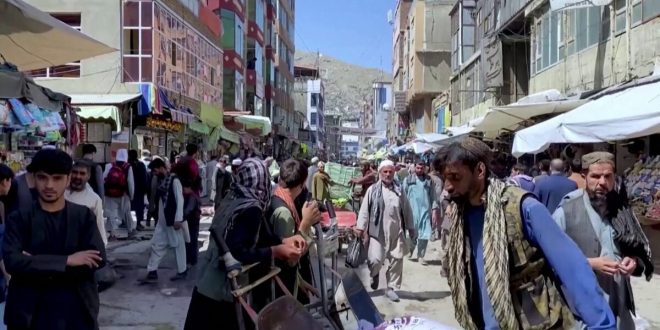KABUL – Afghanistan’s economy faced significant challenges throughout 2024, marked by slow growth and widespread food insecurity. United Nations data revealed that by December, three out of four Afghans struggled with reliable access to food, with 75 percent of households borrowing money to cover basic needs.
Poverty and unemployment surged to alarming levels during the year. Reports from the World Bank and the United Nations Development Programme indicated a sharp rise in monetary poverty over the past three years: 55% in 2022, 58% in 2023, and 85% in 2024. Many Afghan families faced dire choices, often having to decide between feeding their children or providing heat during the harsh winters.
Khan Mohammad, a resident of Farah, expressed his desperation, saying, “Work is so scarce that young people get one day of work in 20. What are we supposed to do? If this continues, I’ll steal or kill just to feed my children.”
The situation was particularly devastating for women. The Taliban’s policies barring women from the workforce have further crippled the economy, costing Afghanistan an estimated $600 million to $1 billion annually, according to the United Nations. Somaya, a widow in Ghor, shared her plight: “My children are small, and I am their only provider. I have no house, no food, and no water.”
Such stories are tragically common in Afghanistan, where 23 million people are in urgent need of assistance. The United Nations predicts unemployment will remain high in 2025, leaving Afghanistan among the countries with the highest jobless rates globally, alongside Yemen and Somalia.
With international development funding drastically reduced since the Taliban’s return to power in 2021, the regime has turned to mining contracts to generate revenue. In 2024, the Ministry of Mines and Petroleum reported agreements for 10 major projects across eight provinces, including gold mines in Baghlan and Takhar, coal and iron in Herat, and cement plants in Logar and Jawzjan. Private companies pledged nearly $900 million in investments, with Chinese firms playing a leading role.
Last week, the Taliban awarded a contract for the Altamur cement plant in Logar to SACO Afghan, a company with significant Chinese ownership. Hedayatullah Badri, the Taliban’s mining minister, described the investment as a major achievement, stating, “Today, we signed another major project in Logar’s Altamur area—a cement plant with $145 million in investments from SACO Afghan.”
Despite these efforts, Afghanistan’s economic outlook remains grim. Development projects that previously created short-term jobs have largely disappeared, and the Taliban continue to withhold budget details. The United Nations has warned that restrictive policies, particularly those targeting women, will further hinder economic recovery. The agency’s projections for 2025 describe Afghanistan’s economic prospects as deeply concerning, with no clear signs of improvement.
 Afghanistan Times
Afghanistan Times




